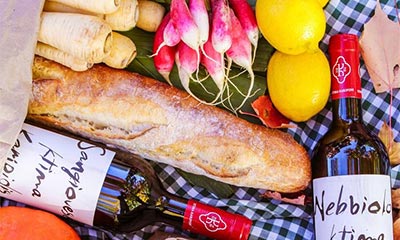Savor the Flavors: A Deep Dive into African Food & Drink

African cuisine is a vibrant tapestry of flavors, traditions, and ingredients that vary widely across the continent's diverse regions. From the rich stews of West Africa to the aromatic spices of North Africa, each dish tells a story of culture, history, and community. In this deep dive, we explore the delightful world of African food and drink, highlighting the essential elements that make this cuisine so unique.
African Food & Groceries: When it comes to African food and groceries, the variety is astounding. Traditional markets and modern grocery stores alike are filled with an array of fresh produce, grains, spices, and unique ingredients that are fundamental to African cooking. Staples like yams, plantains, cassava, and millet are common, providing the base for many hearty meals. Spices such as berbere, harissa, and peri-peri add depth and complexity to dishes, reflecting the rich culinary heritage of the continent.
Breakfast & Cereal: Breakfast in Africa can range from simple to elaborate, depending on the region. In many West African countries, breakfast often includes akara (bean cakes) or moi moi (steamed bean pudding), served with pap (a cornmeal porridge). North African breakfasts might feature dishes like shakshuka, a spiced tomato and egg dish, or m’smen, a flaky, layered bread. Cereals such as millet, sorghum, and teff are not only used in traditional porridge but also in modern breakfast options, offering a nutritious start to the day.
Dairy & Milk: Dairy products play a significant role in various African cuisines. In East Africa, particularly in Kenya and Ethiopia, milk and milk products like yogurt and butter are integral to the diet. Maasai communities, for example, consume a diet rich in milk, blood, and meat. In North Africa, dairy products like labneh (strained yogurt) and various cheeses are staples. Fresh milk and fermented dairy products are used in cooking and as accompaniments to meals, providing a rich source of nutrition.
Drinks & Beverages: African beverages are as diverse as the continent itself. Traditional drinks range from non-alcoholic options like ginger beer, bissap (hibiscus tea), and baobab juice to alcoholic beverages like palm wine and millet beer. In Ethiopia, coffee holds a place of cultural significance, with traditional coffee ceremonies being an essential part of social life. In Morocco, mint tea is a symbol of hospitality and is enjoyed throughout the day. These drinks not only quench thirst but also offer a glimpse into the daily lives and traditions of African people.
Exploring Authentic African Foods is a journey through a landscape of vibrant flavors and rich cultural heritage. Whether you're sampling street food in Lagos, enjoying a home-cooked meal in Nairobi, or participating in a coffee ceremony in Addis Ababa, the culinary traditions of Africa offer an unforgettable experience. So, the next time you visit your local African food and groceries store, take a moment to savor the flavors and appreciate the stories behind each ingredient and dish.



Comments